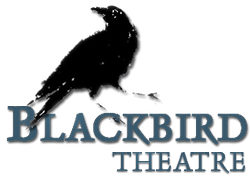
Vancouver East Cultural Centre
December 2013-January 2014
Directed by John Wright
Set & Costume Design by Marti Wright
Lighting Design by Alan Brodie
Stage Managed by Joanne P.B. Smith
Production Management by Jayson McLean
CAST: Anthony F. Ingram, Stephen Aberle, Mary Black, Cherise Clark, Duncan Fraser, Luisa Jojic, Robert Moloney, Donna Carroll White
Jessie Richardson Award:
Marti Wright, Outstanding Costume Design
Photos by Tim Matheson
No character lurking in the mind of a playwright, waiting to be immortalized, can ever hope for a more truthful and humane observer of life than Anton Chekhov. As much as we are awed by the directness of Ibsen and Aeschylus, and the power and scope of Shakespeare, no writer can enfold us into the life of the play and its characters as fully, yet subtly and artfully, as Chekhov does. That Chekhov accomplishes this within a robust structure that somehow seems impressionistic is a miracle of craftsmanship.
A retired professor returns to live at his country estate with a beautiful new wife, Elena. The estate has since been managed by Vanya, the brother of his first wife. Both Vanya and his friend Astrov, the local doctor, are smitten by the lovely Elena. Vanya’s niece Sonya, who helps him manage the estate, is secretly in love with Astrov but the doctor seems blind to her affection. Elena tries to help Sonya’s cause but struggles with her own attraction to him.
The household is thrown into uproar when the professor announces his plan to sell the estate. Once everyone has left, Sonya tells a weeping Vanya that they must endure, and that work will be their balm. “We shall live, Uncle Vanya and God will have pity on us. And you and I shall hear the angels, and see the whole sky in diamonds . . . and our life shall become quiet, tender, sweet as a caress. And we shall rest . . . yes, we shall rest.”
It’s often said that the best of the Chekhov plays is the one you’ve seen most recently. Uncle Vanya doesn’t have a suicide like The Seagull, or an adulterous couple and a duel more or less indistinguishable from murder, like Three Sisters; nor does it seem to announce the end of an era, like The Cherry Orchard. All it has is a series of ludicrously bungled attempts at murder and suicide and adultery. Perhaps the failures are what make it feel the saddest and most truthful of these great tragi-comedies.
Christopher Hampton, The Independent, 2012














